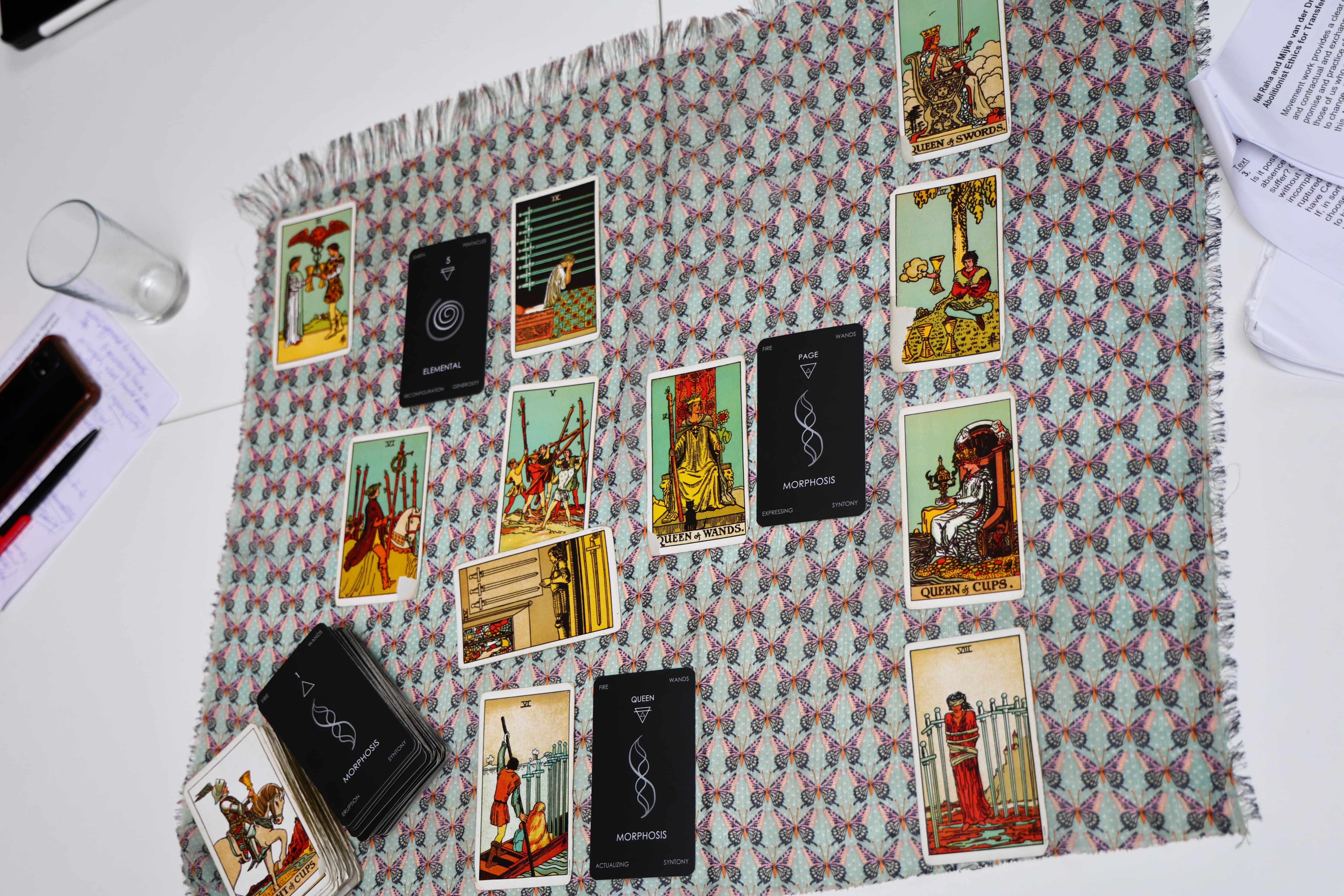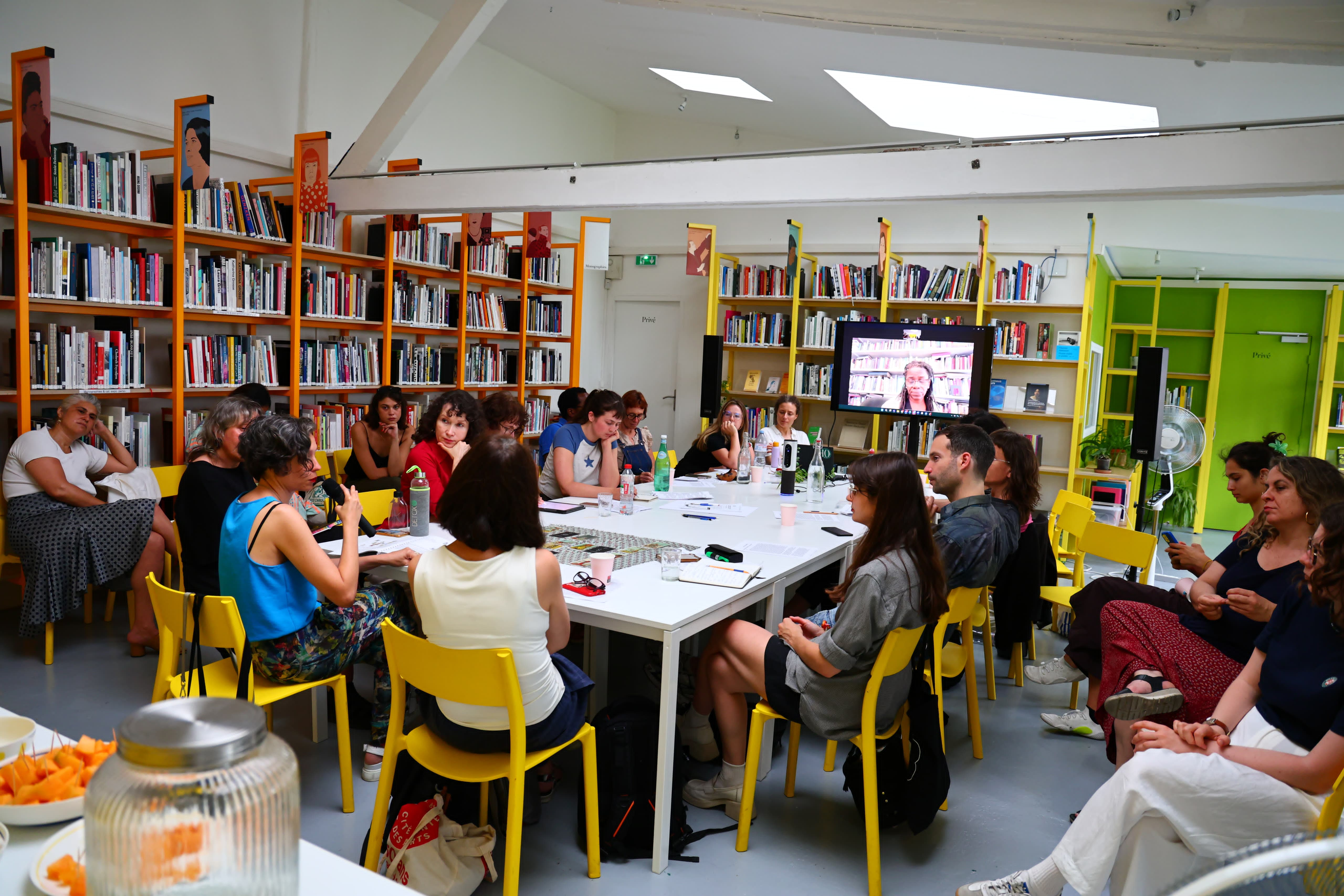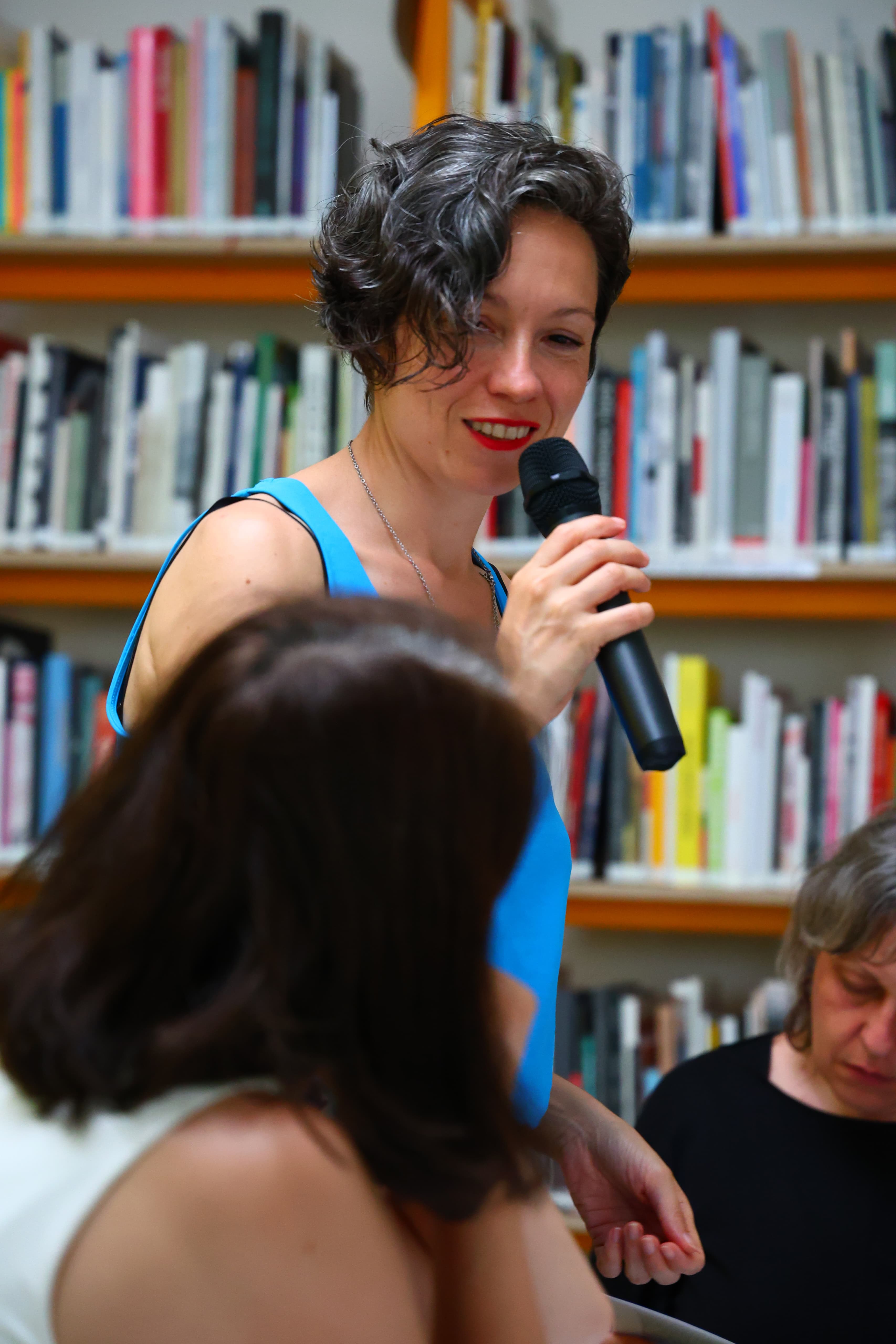Reading with Echo : On Generosity
AWARE, Villa Marie Vassilieff, 21 Avenue de Maine, 75015 ParisJune 26 and 27, 2025




French version
On the invitation by AWARE: Archives of Women Artists, Research & Exhibitions, Initiative for Practices and Visions of Radical Care imagined “Care as Methodology”, a series of events that aim to practice and reflect collectively on intersections of care and art. For the fourth and last event of this series, Valentina Desideri and Denise Ferreira da Silva presented their project Reading with Echo: On Generosity, a session that invited participants into a shared inquiry around care, tarot, and the poethics of generosity.
Rooted in their unique approach to reading, this deck emerges from poethical interpretations of poetry — especially the work of Ai Ogawa — and takes shape through tarot spreads, Reiki sessions, and intuitive inquiry. Rather than reimagining the Tarot in its conventional form, the Echo Tarot reconfigures its ethical foundations. It departs from the classical, linear arc of self-actualization — epitomized in traditional decks by the figure of the Magician — and instead proposes a layered, complex composition of meaning.
In this deck, the Empress becomes Generosity : not a static archetype, but a force that acknowledges existence as ongoing re- and de-composition. Meaning is not tethered to a single purpose or final outcome, but resides in the infinite — the continuous unfolding of what comes into and out of space and time.
To expand this exploration, Valentina and Denise invited participants to join a collective study of the Empress — and the image of Generosity she evokes.
This event is produced in collaboration with visual artist Petra Bauer, initiator of Feminism Art Maintenance (F.A.M).
Photo credits : Tawfiq Sediqi